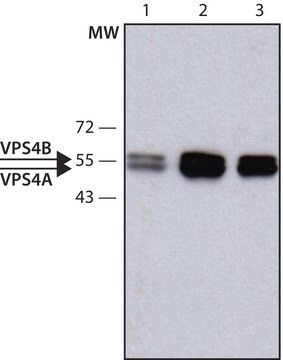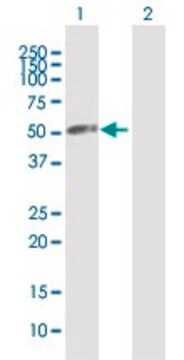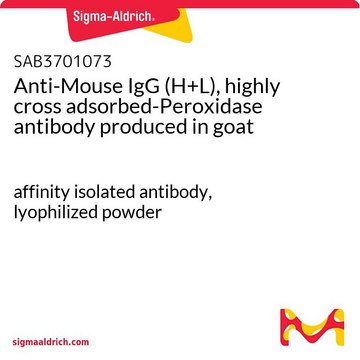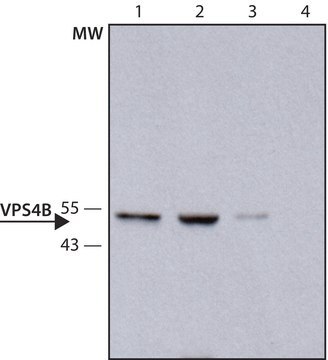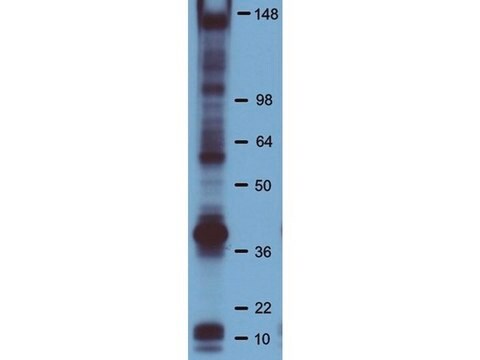Wichtige Dokumente
SAB4200215
Anti-VPS4A antibody, Mouse monoclonal
clone VPS4-110, purified from hybridoma cell culture
Synonym(e):
Anti-SKD1, SKD1A, SKD2, VPS4-1, Anti-Vacuolar protein sorting factor 4A, Anti-hVPS4
About This Item
Empfohlene Produkte
Biologische Quelle
mouse
Konjugat
unconjugated
Antikörperform
purified from hybridoma cell culture
Antikörper-Produkttyp
primary antibodies
Klon
VPS4-110, monoclonal
Form
buffered aqueous solution
Mol-Gew.
antigen ~50 kDa
Speziesreaktivität
mouse, canine, bovine, human, rat
Konzentration
~1.0 mg/mL
Methode(n)
immunoprecipitation (IP): suitable
western blot: 1-2 μg/mL using whole extracts of mouse 3T3 or human HEK-293 cells.
Isotyp
IgG1
UniProt-Hinterlegungsnummer
Versandbedingung
dry ice
Lagertemp.
−20°C
Posttranslationale Modifikation Target
unmodified
Angaben zum Gen
human ... VPS4A(27183)
mouse ... Vps4a(116733)
rat ... Vps4a(246772)
Verwandte Kategorien
Allgemeine Beschreibung
Anwendung
- immunoblotting
- immunoprecipitation
- immunolabelling
Biochem./physiol. Wirkung
Physikalische Form
Haftungsausschluss
Sie haben nicht das passende Produkt gefunden?
Probieren Sie unser Produkt-Auswahlhilfe. aus.
Lagerklassenschlüssel
12 - Non Combustible Liquids
WGK
WGK 1
Flammpunkt (°F)
Not applicable
Flammpunkt (°C)
Not applicable
Hier finden Sie alle aktuellen Versionen:
Analysenzertifikate (COA)
Die passende Version wird nicht angezeigt?
Wenn Sie eine bestimmte Version benötigen, können Sie anhand der Lot- oder Chargennummer nach einem spezifischen Zertifikat suchen.
Besitzen Sie dieses Produkt bereits?
In der Dokumentenbibliothek finden Sie die Dokumentation zu den Produkten, die Sie kürzlich erworben haben.
Unser Team von Wissenschaftlern verfügt über Erfahrung in allen Forschungsbereichen einschließlich Life Science, Materialwissenschaften, chemischer Synthese, Chromatographie, Analytik und vielen mehr..
Setzen Sie sich mit dem technischen Dienst in Verbindung.
